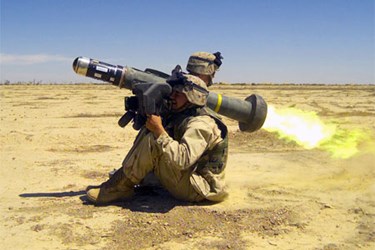Heat-Seeking Missile Tech Used For Malaria Diagnosis
By Joel Lindsey

Researchers at Monash University and the University of Melbourne have devised a way to use hardware from heat-seeking missiles to produce a test for early and reliable malaria diagnosis.
“Our test detects malaria at its very early stages, so that doctors can stop the disease in its tracks before it takes hold and kills,” Bayden Wood, an associate professor at Monash University and lead researcher on the project, said in a press release published recently by the school. “We believe this sets the gold standard for malaria testing. There are some excellent tests that diagnose malaria. However, the sensitivity is limited and the best methods require hours of input from skilled microscopists, and that’s a problem in developing countries where malaria is most prevalent.”
In the project, researchers used a special infrared sensor called a focal plane array (FPA), which was originally created for use in Javelin anti-tank missiles, to seek out the presence of malaria in a blood sample. When the FPA was used in conjunction with an infrared imaging microscope to test a blood smear, it successfully detected the infrared signature from fatty acids in the malaria parasites, enabling researchers to consistently identify malaria-infested blood at early stages of infection.
Researchers said that the FPA demonstrated high levels of sensitivity, identifying the presence of malaria in a single blood cell. This could be helpful, they said, in detecting malaria in those cases when the usual symptoms are not manifest. They also said that the device could generate an automatic diagnosis in four minutes, and that it did not require a specialist to operate the machine.
“In many countries only people who display signs of malaria are treated. But the problem with this approach is that some people don’t have typical flu-like symptoms associated with malaria, and this means a reservoir of parasites persists that can reemerge and spread very quickly within a community,” said Leann Tilley, a professor at the University of Melbourne who is involved with the project. “Our test works because it can detect the malaria parasite at the very early stages and can reliably detect it in an automated manner in a single red blood cell. No other test can do that.”
Details from the researchers’ work have been published recently in the journal Analyst.
Next, researchers plan to team up with scientists at the Kohn Kaen University in Thailand to begin testing the technology in hospital clinics, according to the press release.
Image: FGM-148 Javelin anti-tank missile
